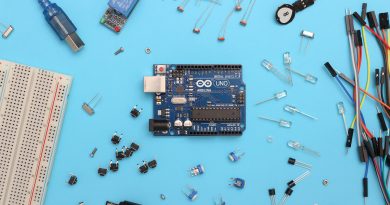5 Tips For Teaching Your Little One French
If you’re looking to teach your little one French and are worried about how to go about it, worry not! Learning a new language at an early age is incredibly beneficial. It helps your child develop their brain, learn about other cultures, and make friends more easily when they start school.
It’s never too early to start teaching your child another language. Even if they don’t remember much of what you teach them now, it will help them in the future.
Whether you have family that speaks French or not, these tips will help you get started on the right path toward teaching your kid this beautiful language. Continue reading to find out more!
1. Get Them Interested
One of the best ways to start your child on the path to French fluency is to pique their interest in the language. If your kid’s really into music, try a French pop playlist. If they love animals, choose a French kids’ channel. If sports are your kid’s passion, look for French sporting events.
When you’re watching TV, try to include French subtitles whenever possible. When you’re on the go, playing music in the car or on your phone is a great way to make French part of your everyday life.
2. Set a Routine for Learning
Though it’s important to be spontaneous in your approach to helping your kid learn French, you also need to set a routine for learning. You may want to set aside a specific time of day or week to review your child’s progress. The best way to do this is to use a checklist to ensure you don’t miss any points.
3. Use Educational Toys
Many parents will tell you that you should make learning as serious as possible, but that isn’t always true. If you can turn a task that’s usually boring and uninteresting into something fun and engaging, you’re more likely to get your child to enjoy the process.
You may want to make learning more fun by incorporating French toys and games like the Djeco – Wooden Farm’n’co Puzzle or the Janod – Sweet cocoon stacking stones. These games can be used in many ways, making them highly versatile learning tools to help your child learn French or to test them on what they’ve already learned.
4. Talk to Your Child in French
Whether your child understands you or not, talking to them in French will help them get used to hearing the language. It will also encourage them to speak it, and that’s essential to their language development.
You can also turn everyday activities into language lessons. For example, when you’re cooking, you can talk about the different ingredients you’re using or discuss the health benefits of certain foods. Using these everyday experiences as a way to reinforce French can be a helpful way to build your child’s language skills.
5. Celebrate Progress
As you build your child’s language skills, celebrate their progress. The best way to learn is through positive reinforcement, which also applies to language development.
Whether your child picks up a new French word, reads a book in French, or correctly uses a phrase you’ve been working on, mark the occasion and use positive reinforcement to help build your child’s confidence in their language skills.
The more positive feedback they get, the more likely they will continue picking up French.
In Conclusion
As you can see, the path to French fluency is not an easy one. It will require time, effort, and more than a few blunders. But it’s also a journey that is well worth taking. By following these tips, you can start along the path to French fluency and ensure your future is as bright as possible.



